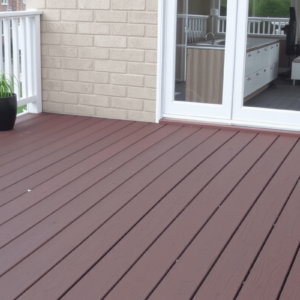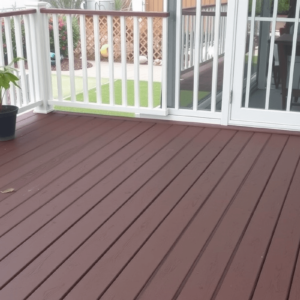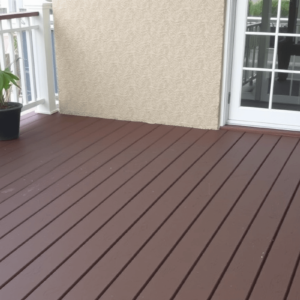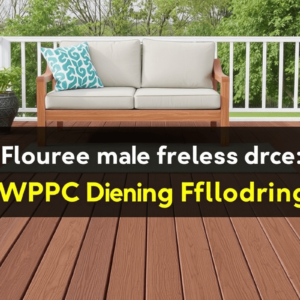Composite Deck Screws vs Regular Fencing: An In-Depth Analysis
Introduction to Composite Deck Screws and Regular Fencing Screws
In the realm of outdoor construction and home improvement, choosing the right screw can make all the difference. Two popular options are composite deck screws and regular fencing screws. Both serve crucial roles in securing materials, but they differ significantly in terms of material composition, durability, ease of installation, cost-effectiveness, and environmental impact. This article delves into these aspects to help you make an informed decision when selecting the best screws for your next project.
Materials Used in Composite Deck Screws and Regular Fencing Screws
Composite deck screws are specifically designed for use with composite decking materials, which are typically made from a mixture of wood fibers and plastic. These screws are often made from stainless steel or coated with a corrosion-resistant material to withstand exposure to moisture and UV rays. On the other hand, regular fencing screws are usually made from galvanized steel or coated with zinc to resist rust and corrosion. The choice of materials directly impacts the screws’ longevity and performance in different environments.
Durability: A Key Factor in Choosing Between Composite Deck Screws and Regular Fencing Screws
The durability of composite deck screws is superior due to their resistance to moisture, UV radiation, and rot. Stainless steel and corrosion-resistant coatings ensure that these screws maintain their integrity over time, even in harsh weather conditions. Regular fencing screws, while durable, may not offer the same level of protection against the elements, especially in areas prone to high humidity or frequent rainfall. Therefore, composite deck screws are often recommended for applications where long-term durability is a priority.
Installation Ease: Making Your Project Hassle-Free
One of the significant advantages of using composite deck screws is their self-drilling design, which eliminates the need for pre-drilling holes. This feature makes installation faster and more straightforward, reducing labor costs and time. Regular fencing screws, however, require pre-drilled holes, which can be time-consuming, particularly if you’re working with dense or hardwood materials. Additionally, composite deck screws often come with a countersink head, allowing for a flush finish, which is ideal for maintaining the aesthetic appeal of your deck or fence.
Cost-Effectiveness: Balancing Budgets and Quality
When it comes to cost, regular fencing screws are generally less expensive than composite deck screws. However, this price difference should be weighed against the longer lifespan and lower maintenance requirements of composite deck screws. While initial costs may be higher, the overall value proposition of composite deck screws could be more favorable, especially for projects that require long-term durability. For budget-conscious consumers, regular fencing screws might be a viable option, provided they meet the specific needs of the project and do not compromise on safety or aesthetics.
Environmental Impact: Sustainability Matters
In today’s environmentally conscious world, the sustainability of building materials and tools cannot be overlooked. Composite deck screws, being made from recycled materials, contribute to waste reduction and promote sustainability. They also reduce the need for frequent replacements, thereby minimizing the environmental footprint associated with ongoing maintenance. Regular fencing screws, while not inherently less sustainable, may have a higher carbon footprint due to their manufacturing process and the energy required for metal extraction and processing. However, the environmental impact can vary based on the source of the raw materials and the manufacturing practices employed.
Comparison Chart: A Quick Reference Guide
| Criteria | Composite Deck Screws | Regular Fencing Screws |
|---|---|---|
| Material | Stainless Steel / Coated | Galvanized Steel / Zinc-Coated |
| Durability | High (Resistant to Moisture, UV) | Moderate (Rust & Corrosion Resistant) |
| Installation Ease | Self-Drilling Design (No Pre-Drilling Required) | Requires Pre-Drilling |
| Cost-Effectiveness | Higher Initial Cost but Lower Maintenance Costs | Lower Initial Cost but Higher Maintenance Costs |
| Environmental Impact | Sustainable (Recycled Materials) | Depends on Manufacturing Practices |
Expert Recommendations
For projects requiring long-term durability and minimal maintenance, such as composite decks, composite deck screws are the recommended choice. Their self-drilling design and corrosion-resistant properties make them ideal for withstanding harsh weather conditions. However, for simpler fencing projects or when working within a tighter budget, regular fencing screws can be a practical solution. Always consider the specific needs of your project and the environment in which the screws will be installed to make the most suitable selection.
Reference Literature
Deck Resource: Deck Screws vs Fence Screws





Reviews
There are no reviews yet.